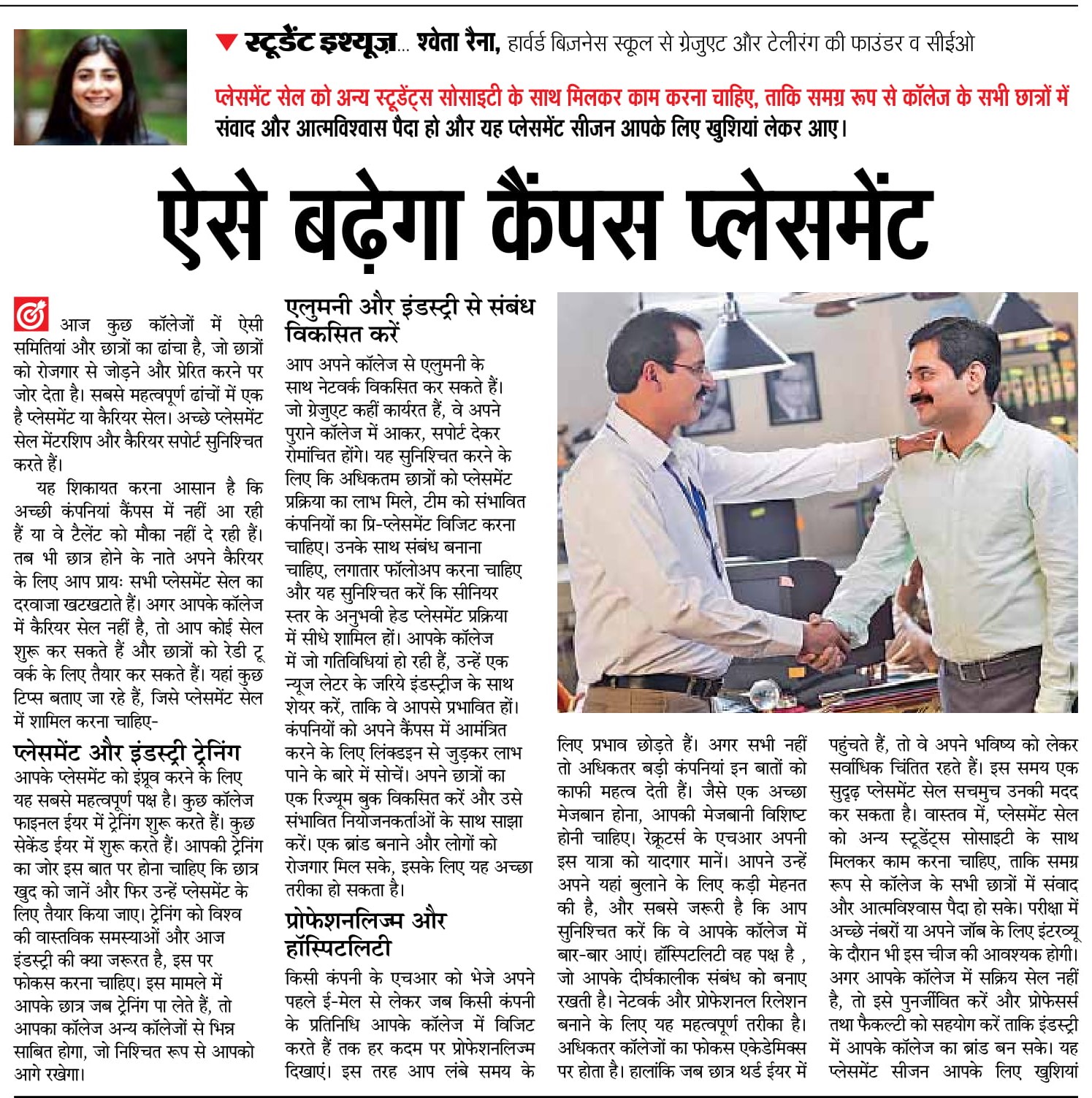Hi, I am Priya Maurya from Lucknow, Uttar Pradesh . I did my Bachelor’s in Arts from MVPG, Lucknow. I am currently pursuing my Master’s in English Literature from the University of Lucknow. I have served National Cadet Corps as a cadet then as a Senior Under Officer (Army Wing). My favorite hobbies are reading Russian Literature, watching Formula 1, running and doing yoga everyday. Here’s me sharing my first corporate experience. Come step into the corporate world with me.

Just like any other college going student, I too was perplexed as to how to be work-ready , get an internship and make a mark. I went through a lot of websites and courses , then I got introduced to Talerang. Here starts my journey towards upskilling. I must admit the training at Talerang has played a very essential role in shaping my personality and work ethics. From getting an internship at Templatolio Technologies to converting it into a full-time role, every step I took involved techniques taught to me during the Future CEOs program both including soft and hard skills.
While all the skills helped me to get placed at Templatolio Technologies, my first challenge was the workload. The workload of writing blogs took me a bit as this was my first professional experience. But with good communication with my team members I was able to deal with it properly and complete my tasks on time. While working as a full-time employee, one thing that always helped me was having a to-do list. I never missed out on any tasks or important things.
Having a good team bond helped me improve my performance and work quality. One thing that I loved was how I with the help of good communication honed at Talerang was able to be a valued person for people from other teams too apart from the content team. I was always open to remarks, this helped me to adapt much more nicely to the work environment there.
An intern’s guide to tips and advices regarding how one can convert their internship into a full-time role:
- Be yourself: Be true to your task. Don’t lie , don’t pretend or over promise anything that you can’t meet up with.
- Have a voice: Participate in team discussions, put your point politely. Actively take up the roles of speakers or presenters for any task whenever offered.
- Be proactive: Since the internship will be of your choice make sure you always have a plan for the tasks allotted to you. Meet the needs before the deadlines. Have a very organized schedule with a back-up always.
- As my role was content related, I’ll suggest people for content related posts to always go through the previous documents the company has kept. This helps you build a good knowledge regarding the work.
- Have a keen eye and an open mind: Keep looking for ideas to enhance the quality of your work and keep accepting remarks. This always helps you to improve and be passionate.
- Never ever forget to check your mails, and always have a to-do list.
I agree there are many challenges for an intern which vary from place to place based upon their role, but with challenges come opportunities. The “easy come easy go” mantra has always helped me to go through challenges.
If something comes, deal with it with an ease, if you can’t let it go with an ease. This way neither do you lose a chance, nor do you let yourself be disappointed. Another challenge that I faced as an intern during my first internship was proving myself. It was a bit hard as the work was new to me, but the points that I shared above were what helped me to become a valued intern leading to become a well-reputed employee whose voice was valued and suggestions were always taken into consideration.
As I end my talk here, I hope the guide will help you be you , do you, for you!
Written by:
Priya Maurya








